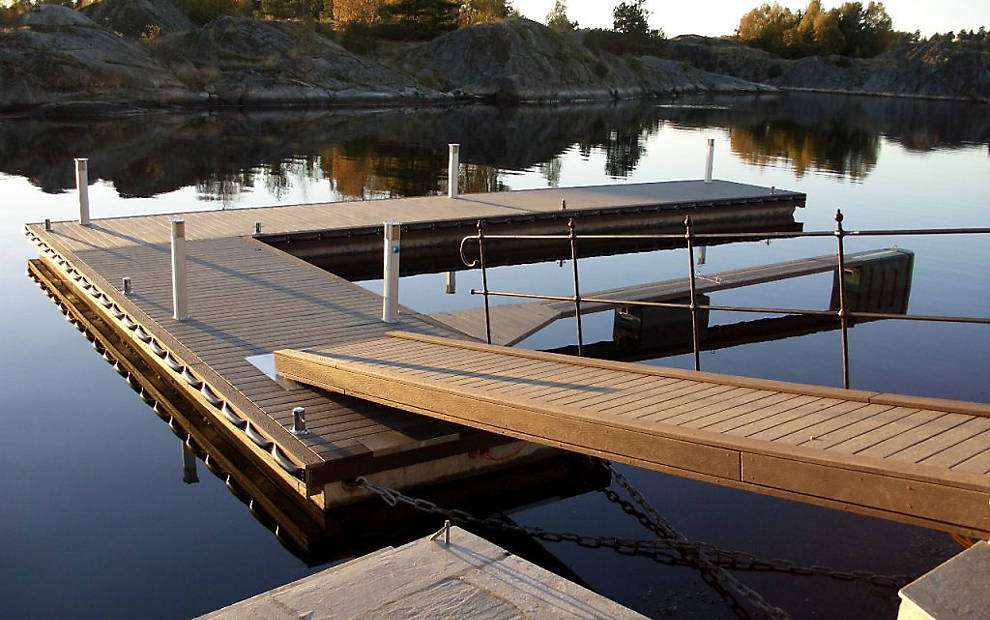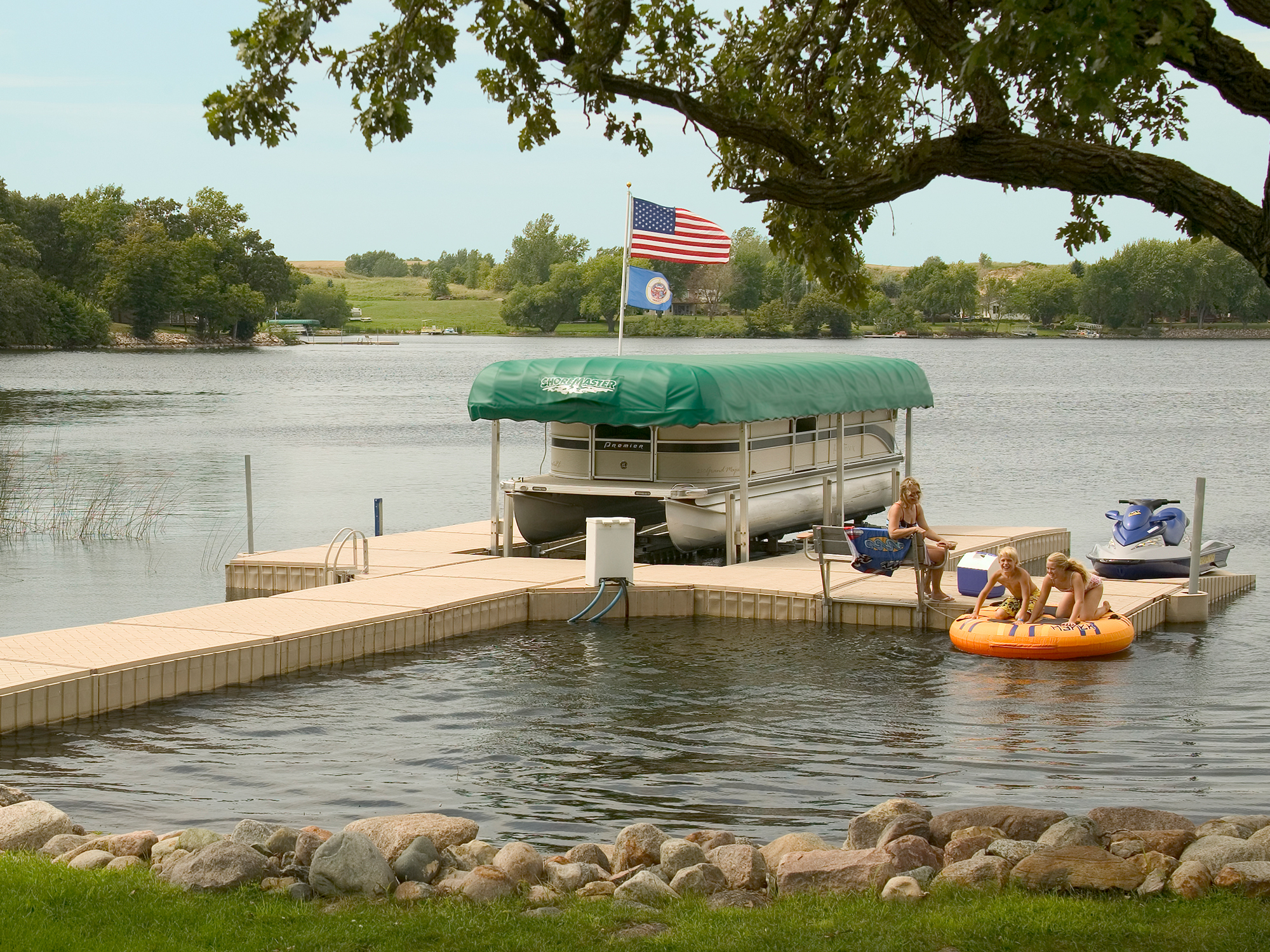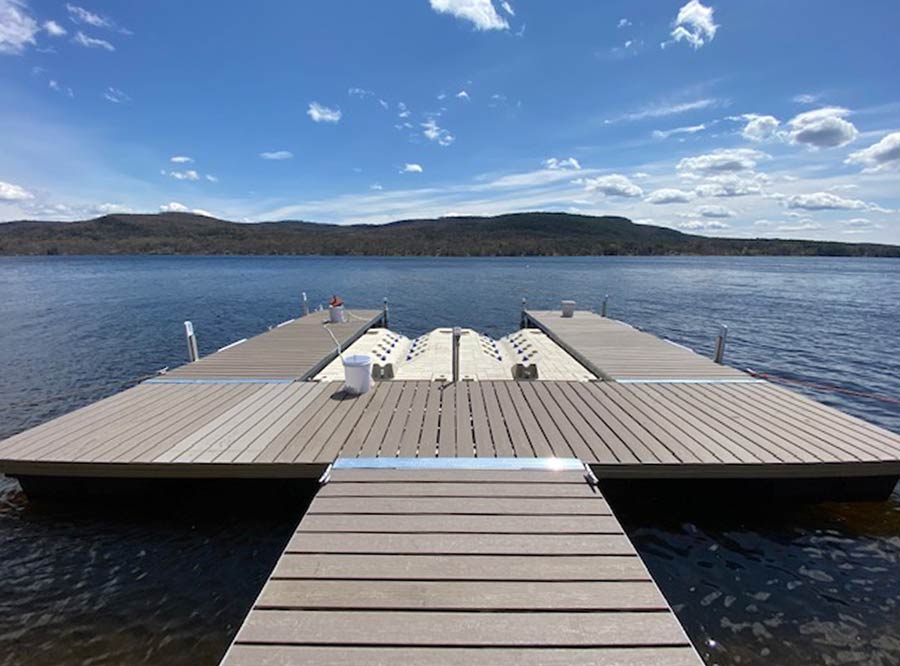Checking Out the Comprehensive Floating Dock Services Offered by Industry Leaders
The Ultimate Overview to Choosing the Finest Floating Docks
Picking the suitable floating dock requires a detailed understanding of numerous aspects that influence both efficiency and durability. Elements such as dock types, products, and essential features dramatically affect your decision-making procedure. Considerations around installation and spending plan can further complicate the option. By checking out these facets systematically, one can ensure an investment that not only meets prompt demands but additionally enhances general building worth. As we explore these critical components, it ends up being clear that the appropriate choices can lead to a functional and long lasting solution customized to your specific requirements.
Understanding Floating Dock Types
When selecting a drifting dock, it is vital to recognize the different types offered, as each serves unique objectives and applications. Floating docks primarily come under 3 classifications: modular, stationary, and pontoon docks.
Modular docks are made up of specific sections that can be conveniently assembled or reconfigured, making them perfect for altering water levels and diverse uses, such as industrial operations or entertainment activities. Their adaptability permits modification based upon details demands.

Pontoon docks are identified by their buoyant framework, typically composed of several pontoons that give stability and support. They are particularly appropriate for larger vessels and are commonly utilized in marinas or for beachfront residential or commercial properties. Recognizing these kinds aids in picking one of the most ideal floating dock to satisfy certain demands, guaranteeing ideal performance and security.
Trick Materials for Durability
Picking the best products for floating docks considerably effects their sturdiness and longevity. The most usual products consist of wood, plastic, metal, and composite materials, each offering unique advantages and constraints.
Timber, frequently preferred for its aesthetic charm, needs normal upkeep to hold up against dampness and decay. Pressure-treated lumber can improve resistance to rot, but it might still be prone to insects and weathering.

Plastic docks, constructed from high-density polyethylene (HDPE), are immune to corrosion, UV radiation, and impact, making them a prominent choice for coastal atmospheres. Their lightweight nature additionally facilitates very easy installation and moving.
Metal docks, typically constructed from light weight aluminum or galvanized steel, provide phenomenal stamina and durability. They are immune to corrosion, particularly when dealt with, yet might call for additional insulation to prevent heat buildup in hot environments.
Composite materials, incorporating wood fibers and plastics, supply the advantages of both timber and plastic, resisting wetness and fading while calling for marginal maintenance. - floating dock services
Eventually, the option of products must straighten with ecological problems, planned use, and upkeep preferences to make certain the floating dock stays practical and visually pleasing in time.
Important Attributes to Take Into Consideration
While the choice of materials is essential, discover this info here thinking about crucial functions for floating docks is just as essential to make sure optimum efficiency and user satisfaction. One key attribute to assess is the dock's buoyancy capacity, which determines just how much weight it can sustain without immersing. floating dock company. This is vital for suiting boats, personal boat, and even leisure activities
Additionally, mobility is a considerable factor to consider. Relying on your demands, you might desire a dock that is very easy to transfer and take apart, especially if you plan to relocate it seasonally. Stability is another important feature; a well-designed floating dock needs to decrease activity triggered by wind and water currents, supplying a safe platform for individuals.
Safety functions, such as non-slip surfaces and rounded edges, are also critical to prevent crashes, specifically in damp conditions. Furthermore, take into consideration the schedule of devices, such as ladders, cleats, and bumpers, which can enhance the functionality of your dock.
Installment and Upkeep Tips
Establishing and keeping a floating dock requires careful planning and interest to detail to guarantee its longevity and optimum performance. Begin by picking a proper location that minimizes direct exposure to strong currents and waves, which can create deterioration. Ensure that the water deepness is sufficient for these details the dock's elevation and that it is secured safely to stop activity.
During setup, follow the maker's standards carefully, as inappropriate assembly can endanger stability. Usage high-quality products immune to corrosion, such as light weight aluminum or treated wood, to improve sturdiness. Routinely evaluate all components, including drifts, adapters, and anchoring systems, for indicators of damage or wear.
If your dock uses flotation devices, ensure they stay complimentary and undamaged from leaks. By adhering to these installation and maintenance tips, you can appreciate a functional and trustworthy floating dock for years to come.
Budgeting for Your Dock
Budgeting for your dock is an important step that can considerably affect your overall complete satisfaction and investment in a beachfront home. Developing a clear budget plan assists you navigate the numerous choices available and ensures you make educated decisions that straighten with your economic abilities.
Begin by determining the dimension and style of the dock you require, as these aspects will greatly affect the expense. Floating docks can vary dramatically in cost, depending on products, buoyancy, and features like devices and ramps. Research study various makers and suppliers to contrast prices and recognize the market worth.
Along with initial prices, consider recurring expenses such as upkeep, insurance, and prospective repairs. Designate funds for these persisting costs to prevent see shocks down the line. It's likewise sensible to budget for any type of necessary licenses or examinations, which might be needed by neighborhood regulations.
Finally, bear in mind the potential roi. A tactical dock can enhance your residential property's value and allure, providing a positive economic impact in the long-term. By budgeting successfully, you can make certain that your dock satisfies your demands without endangering your financial stability.
Verdict
In conclusion, selecting the ideal floating dock demands a complete examination of various variables, consisting of dock types, products, necessary functions, and installation procedures. Careful factor to consider of monetary constraints will certainly further make certain an audio investment.

While the selection of materials is critical, considering vital attributes for floating docks is equally essential to make sure optimum efficiency and individual contentment.Setting up and maintaining a floating dock needs cautious planning and interest to information to guarantee its long life and optimum performance. Floating docks can differ substantially in rate, depending on products, buoyancy, and attributes like devices and ramps.In verdict, picking the perfect floating dock demands a complete analysis of numerous aspects, consisting of dock kinds, materials, vital functions, and installation processes.